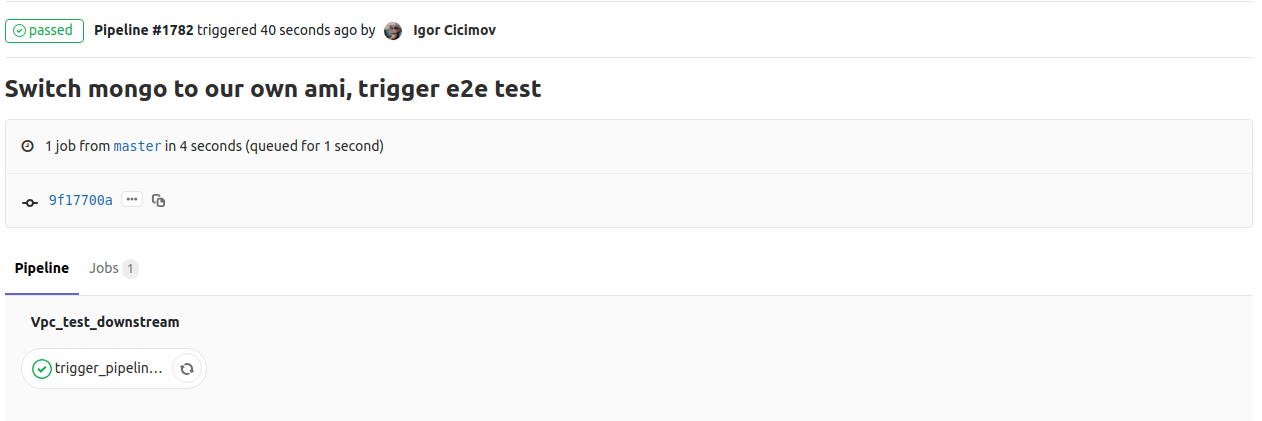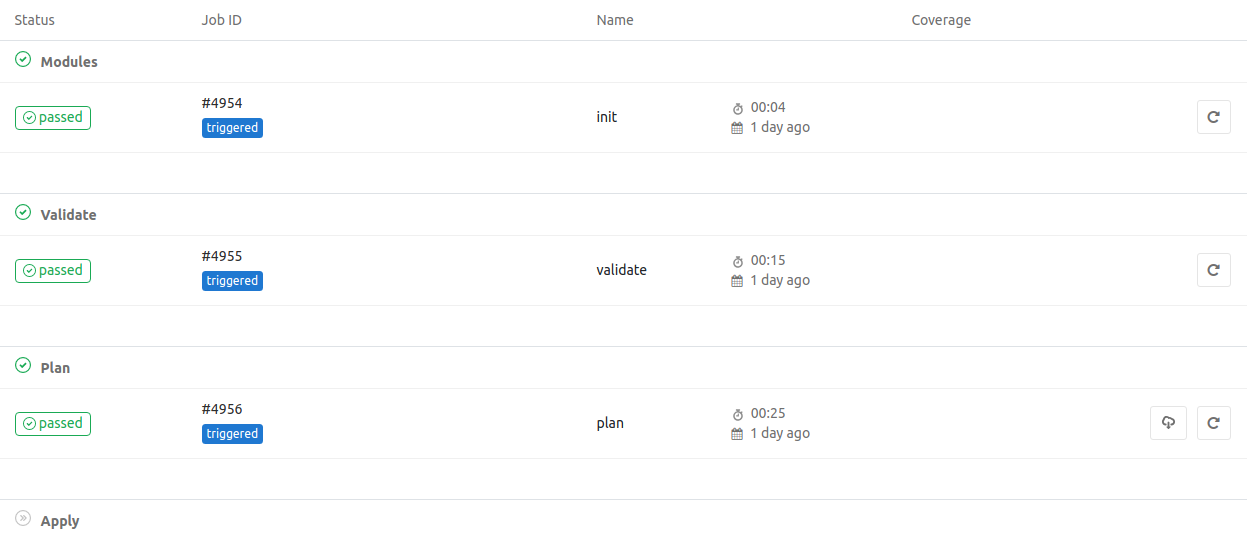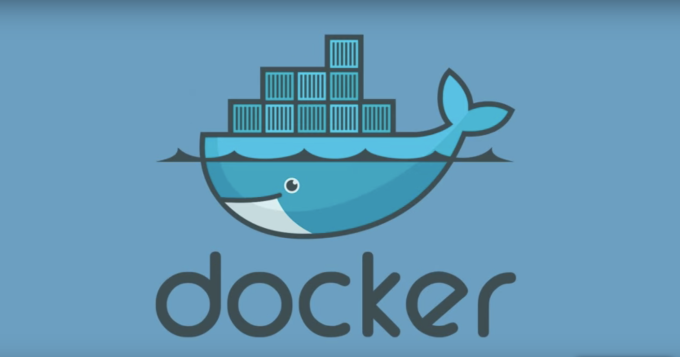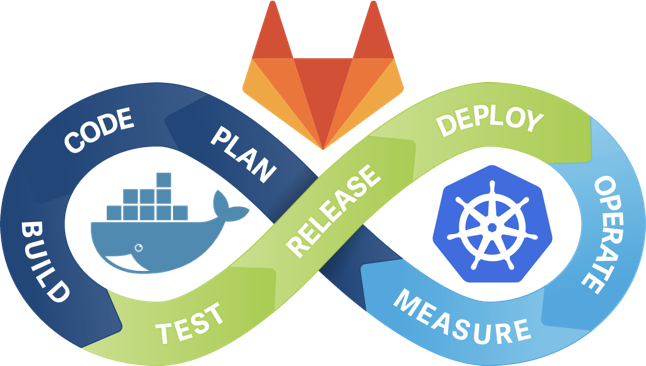GitLab CI/CD Multi-project Pipelines for Terraform and AWS
I use Terraform to provision our AWS infrastructure. Each production and staging environment gets provisioned in its own VPC and each service is clustered or deployed in highly available manner. My main Terraform code is inside its own GitLab repository in form of modules which are used by all other Terraform projects. Lets call this project ProjectA. Then I have a ProjectB that I use for end-to-end testing of the main repository, meaning every time I make a change of the ProjectA’s modules in the master branch I want to trigger the ProjectB’s pipeline that will launch a complete VPC so we can test all our services and make sure the changes are sane.
Target project CI/CD setup
The ProjectB, the target project, will have the following pipeline stages:
stages:
- modules
- validate
- plan
- apply
- destroy
and each stage will include the following before_script and job template:
before_script:
- terraform --version
- mkdir -p ~/.aws
- echo $AWS_CREDS | base64 -d > ~/.aws/credentials
- rm -rf .terraform
- terraform init
.job_template: &job_template
only:
refs:
- master
- pipelines
- triggers
- web
variables:
- $CI_PIPELINE_SOURCE == "pipeline"
except:
variables:
- $CI_COMMIT_MESSAGE =~ /skip-e2e-test/
In short, first in the before_script we set the needed AWS credentials via base64 encoded project variable AWS_CREDS. This is simply created from a file containing a dedicated user’s credentials:
[default]
aws_access_key_id = xxxxx
aws_secret_access_key = yyyyy
then we obtain the value as:
$ cat file | base64
The AWS IAM credentials have appropriate permissions for Terraform to do it’s job and access the S3 backend to store its state file (that is also configured with DynamoDB table for locking thus preventing multiple users making changes to the project in the same time).
Then we set the conditions we want this pipeline to get started under which are when we push to master, via a web hook or manually via the web UI. I have also set a option for trigger via a CI_PIPELINE_SOURCE variable that another project can pass in. There is also a CI_COMMIT_MESSAGE variable in which I set a condition under which I don’t want the pipeline to get triggered which is in case of commit message containing the skip-e2e-test string.
As I mentioned before, all my code for the AWS infrastructure is organized in modules in ProjectA. They are then referenced in ProjectB like this for example:
module "vpn" {
source = "git::https://git.example.com/<group>/ProjectA//modules/vpn"
...
}
When the terraform init gets executed it will pull the modules directory from ProjectA and compile the modules under local .terraform directory. Since I want this modules directory carried over between stages (so I don’t clone it over and over again) I set a cache for it in the pipeline:
cache:
paths:
- modules
That is more or less the gist of it, the full .gitlab-ci.yml file looks like this:
variables:
DOCKER_DRIVER: overlay2
DOCKER_HOST: tcp://localhost:2375
image:
name: hashicorp/terraform:0.11.13
entrypoint:
- '/bin/sh -c'
stages:
- modules
- validate
- plan
- apply
- destroy
cache:
paths:
- modules
before_script:
- terraform --version
- mkdir -p ~/.aws
- echo $AWS_CREDS | base64 -d > ~/.aws/credentials
- rm -rf .terraform
- TF_LOG=trace terraform init
.job_template: &job_template
only:
refs:
- master
- pipelines
- triggers
- web
variables:
- $CI_PIPELINE_SOURCE == "pipeline"
except:
variables:
- $CI_COMMIT_MESSAGE =~ /skip-e2e-test/
init:
stage: modules
before_script:
- echo -e "machine git.example.com\nlogin gitlab-ci-token\npassword ${CI_JOB_TOKEN}" > ~/.netrc
script:
- git init pull
- cd pull
- git remote add origin https://git.example.com/<group>/ProjectA.git
- git config core.sparsecheckout true
- echo "modules/*" > .git/info/sparse-checkout
- git pull --depth=1 origin master
- cp -R modules ../
<<: *job_template
validate:
stage: validate
<<: *job_template
script:
- terraform validate -var-file variables.tfvars
dependencies:
- init
plan:
stage: plan
<<: *job_template
script:
- terraform plan -var-file variables.tfvars -out "vpc.tfplan"
dependencies:
- validate
artifacts:
paths:
- vpc.tfplan
apply:
stage: apply
image: igoratencompass/terraform-awscli:latest
<<: *job_template
script:
- terraform apply -auto-approve -input=false "vpc.tfplan"
dependencies:
- plan
when: manual
destroy:
stage: destroy
<<: *job_template
script:
- terraform destroy -force -auto-approve -var-file variables.tfvars
dependencies:
- apply
when: manual
Now some explanation about the stage I called modules. Usually terraform init itself would fetch the modules from the source repository one-by-one but in my case that was failing with the error:
$ terraform init
Initializing modules...
- module.vpc
Getting source "git::https://git.example.com/<group>/ProjectA//modules/vpc"
- module.public-subnets
Getting source "git::https://git.example.com/<group>/ProjectA//modules/subnets"
- module.private-subnets
Getting source "git::https://git.example.com/<group>/ProjectA//modules/subnets"
- module.nat
Getting source "git::https://git.example.com/<group>/ProjectA//modules/nat"
- module.public-subnets-rt
Getting source "git::https://git.example.com/<group>/ProjectA//modules/routes/public"
...
- module.s3_bucket
Getting source "git::https://git.example.com/<group>/ProjectA//modules/s3"
Error downloading modules: Error loading modules: error downloading 'https://git.example.com/<group>/ProjectA': /usr/bin/git exited with 128: Cloning into '.terraform/modules/a839ef67cd80c00e3439361c5830c57c'...
I run GitLab in Kubernetes which in turn is deployed in AWS via kops. Thus the runners are launched as Docker containers and I could not get any log out of them. They also error and exit too quickly thus making any kind of troubleshooting impossible. As a result I came up with the workaround under the modules stage (using sparse checkout) and set all modules to read from local source instead:
module "vpn" {
source = "./modules/vpn"
...
}
and left the troubleshooting for another day. The below image shows the pipeline execution:
At the end of the plan stage we can see 111 resources are ready to get created once we manually activate the apply stage:
...
Plan: 111 to add, 0 to change, 0 to destroy.
------------------------------------------------------------------------
This plan was saved to: vpc.tfplan
To perform exactly these actions, run the following command to apply:
terraform apply "vpc.tfplan"
Releasing state lock. This may take a few moments...
Creating cache default...
modules: found 164 matching files
Archive is up to date!
Created cache
Uploading artifacts...
vpc.tfplan: found 1 matching files
Uploading artifacts to coordinator... ok
Job succeeded
Then we manually run the plan stage which creates a complete VPC with all our resources and services deployed and ready for testing:
When done we run the destroy stage to well destroy the whole infrastructure:
Source project CI/CD setup
Now to PrrojectA, the source project, setup. First we crate a Trigger in ProjectB under Settings->CI/CD->Pipeline triggers and copy the token value into a TOKEN variable in ProjectA. Then the pipeline itself is simple and looks like this:
image: igoratencompass/curl:alpine
stages:
- vpc_test_downstream
# trigger the ProjectB pipeline
trigger_pipeline_in_e2e:
stage: vpc_test_downstream
script:
- curl --version
# below would had been nice but is only available in Gitlab Premium
#- "curl -sS -X POST --form token=${CI_JOB_TOKEN} --form ref=master https://git.example.com/api/v4/projects/<ProjectB-id>/trigger/pipeline"
- "curl -sS -X POST --form token=${TOKEN} --form ref=master https://git.example.com/api/v4/projects/<ProjectB-id>/trigger/pipeline"
only:
refs:
- master
- tags
changes:
- modules/*
- modules/**/*
So only when I make changes to the modules directory and tag a release or push to master this pipeline will trigger the ProjectB’s pipeline. An example is shown below:
The screen shot below shows the ProjectB’s pipeline when this happens (notice the triggered annotations for the jobs):










Leave a Comment